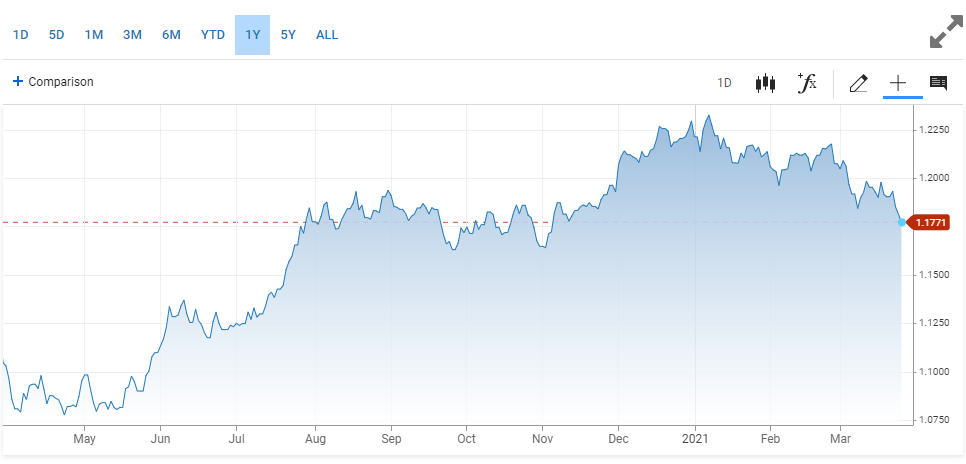There are 27 countries in the European union, 19 of which use the Euro as the official currency. As an advertiser, you need to find seize opportunity. Having a broader range of offers, in more geos, is a great way to bring consistency to your sales throughout the year. When US traffic is down, you have EU offers to sell, and vice versa. What’s more, the European Union boasts a population of 450 million people. While the countries you sell in (i.e. France, Italy, etc.) may be smaller, this should still give you an idea of the possible reach an EU offer could have.
The first country my company sold products in was the United Kingdom. We had made the decision to launch our first affiliate offer in the UK market, even though it would have been simpler to launch in the US. We did so because we didn’t fully know what to expect in the way of complaints or other issues.
Aside from the distance, and redundancy of having offers in multiple countries, the exchange rate can also be a benefit (or detriment, depending on the markets). Take this chart of the EU/USD exchange rate over the past 12 months.

As we can see, the exchange rate to USD has increased from around $1.08 to $1.18 per Euro. This means, if you were selling a product in Euros, your profit margins would have increased, purely due to the exchange rate. Your €50 product would now be worth $59 instead of the $54 it was when you started. That’s an increase of nearly 10%.
So how do we get started? First, you would need to form a company in the EU, with a local Director. There are many jurisdictions to choose from. One of the most popular is Cyprus. There are companies online that can assist with company formation and nominee directors, just do a google search.
The requirements for EU merchant accounts are more rigorous than they are in the United States. Below is a preliminary list of the documentation that you will need to present to the bank to get a merchant account in the EU:
- Copy of Principals Passport/National ID
- 6 Months Merchant Processing Statements (if available)
- Certificate of Incorporation (Originating Co. & EU registered Co.)
- Articles/ Memorandum of Association
- Copy of Business/Operating License (if applicable)
- Voided Check or Bank Letter
- Copy of Utility Bill for Owner and Business Presence
- Domain Proof of Ownership
- Cross Corporate Guaranty (Originating Co. to EU registered Co.)
As with US entities, the bank will want to see the documentation for the UBO (ultimate beneficiary owner) of your EU company, even if you have a nominee director. In some cases, EU banks have requested ‘apostiled’ packages. An apostiled package is the entire collection of corporate documents, notarized together. This however, is not a requirement our underwriters have.
There are a few other things to consider when selling in the EU. The first is funding times. Traditionally, high-risk EU banks have longer funding times. Weekly funding, 1 week in arrears, is not uncommon. Add to that, the delay of sending a wire from your EU company to your US company and your cashflow could be challenging. In most cases, we are able to secure daily funding for our EU merchants.
You’ll also need to complete regular filings and registrations for taxes and other compliance requirements, in the country you have chosen to incorporate in. As in the US, your registered agent can usually handle these administrative tasks for you. You will also need an EU accountant or an accountant that is savvy with the tax law in your EU jurisdiction.
Administratively, setting up an offer in the EU can be laborious. However, when you examine the reach, redundancy and other benefits of setting up in the EU, it is well worth the time and effort.
